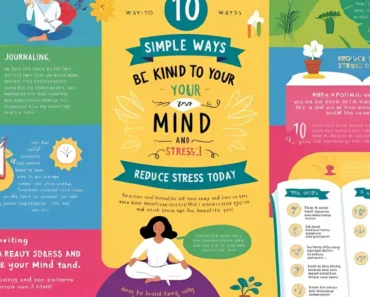Can AI Chatbots Ease Loneliness? The Truth. This guide explores the evolving role of artificial intelligence in mental well-being, examining its potential to offer companionship and support, while also highlighting its limitations compared to genuine human connection.
The Growing Challenge of Loneliness in the Digital Age
Loneliness is a pervasive and growing public health concern across the United States. Despite living in an increasingly interconnected world, many individuals report feeling isolated and lacking meaningful social bonds. This phenomenon affects people of all ages, backgrounds, and social statuses. It carries significant implications for both mental and physical health. The search for connection leads many to explore unconventional solutions, including artificial intelligence. This prompts the question: Can AI Chatbots Ease Loneliness?
Traditional approaches to loneliness emphasize fostering human connections through social activities, community engagement, and therapy. However, barriers such as social anxiety, geographical distance, or a lack of accessible resources can hinder these efforts. This gap in support creates an opening for digital interventions.
The emergence of AI Chatbots, designed to simulate conversation and provide companionship, offers a novel approach to addressing this widespread issue. These chatbots promise immediate, non-judgmental interaction available 24/7. Their increasing sophistication raises important questions about their capacity to truly fill the void of loneliness. Understanding their capabilities and limitations is crucial to evaluating whether AI Chatbots Ease Loneliness effectively.
How AI Chatbots Aim to Address Loneliness: Promises and Methods
AI Chatbots offer specific advantages that make them a compelling option for initial or supplementary support in combating loneliness. Their methods often rely on accessibility, consistency, and a non-judgmental interface.
Constant Availability and Immediate Interaction
One of the most significant advantages of AI Chatbots in addressing loneliness is their unparalleled availability. They are accessible 24 hours a day, 7 days a week, directly from a smartphone or computer. This means individuals can initiate a conversation whenever feelings of loneliness or distress arise, without waiting for an appointment or relying on another person’s availability. This immediate interaction provides a sense of constant companionship. It offers a quick outlet for thoughts and feelings. This accessibility is a primary way AI Chatbots Ease Loneliness for many users.
Non-Judgmental Listening and Validation
AI Chatbots are programmed to respond in a non-judgmental and validating manner. Users can express their thoughts, fears, and vulnerabilities without fear of criticism, misunderstanding, or burdening another person. The chatbot’s consistent positive affirmations and empathetic language can create a safe, private space for emotional expression. This can be particularly comforting for individuals who struggle with social anxiety or have difficulty confiding in others. This unbiased approach helps foster a sense of acceptance.
Structured Activities and Skill Building
Many AI Chatbots integrate structured activities and exercises designed to improve well-being and social skills. These might include guided meditations, journaling prompts, thought exercises based on cognitive behavioral therapy (CBT), or even role-playing scenarios for social interaction. By engaging in these activities, users can learn coping mechanisms for loneliness, practice communication skills, or gain new perspectives on their feelings. This self-help framework can empower individuals to manage their emotions more effectively. This is a practical method for how AI Chatbots Ease Loneliness.
The Limitations: Why AI Cannot Fully Ease Loneliness
Despite their potential, AI Chatbots face significant, fundamental limitations when addressing the complex and deeply human experience of loneliness. These concerns highlight areas where genuine human connection remains irreplaceable.
Lack of Genuine Empathy and Lived Experience
AI Chatbots, by their very nature, lack true consciousness, genuine empathy, intuition, and lived experience. They operate based on algorithms and vast datasets, simulating conversation but not truly understanding or feeling emotions. They cannot share personal stories, offer spontaneous human warmth, or adapt to nuanced social cues in the way a human can. Loneliness is a deeply human emotion. It requires the reciprocal understanding that comes from shared vulnerability and authentic human interaction. An AI cannot provide this depth. This is a core reason why AI Chatbots Ease Loneliness only on a superficial level.
One-Sided Interaction: No Reciprocal Relationship
True human connection thrives on reciprocity and interdependence. Both parties contribute, share vulnerabilities, and mutually support each other. Interactions with AI Chatbots are fundamentally one-sided. The human interacts with the AI, but the AI does not have its own needs, emotions, or experiences to share. This prevents the development of true give-and-take, shared responsibility, or the deep satisfaction of mutual support that characterizes authentic human bonds. The lack of genuine two-way connection means the underlying need for intimacy remains unfulfilled.
Inability to Facilitate Real-World Connection
While some AI Chatbots might offer advice on social skills, they cannot actively facilitate real-world human connections. Loneliness fundamentally stems from a lack of meaningful human relationships. An AI cannot introduce you to new friends, encourage you to join a community group, or physically accompany you to a social event. Its support is confined to the digital realm, which, paradoxically, might reinforce reliance on screens rather than encouraging offline engagement. This is a critical limitation for how AI Chatbots Ease Loneliness.
Ethical Concerns: Data Privacy and Misinformation
Using AI Chatbots for personal emotional support involves sharing highly sensitive information. Concerns about data privacy and security are paramount. Users must trust that their intimate conversations remain confidential and secure from breaches or misuse. Additionally, AI systems can occasionally generate inaccurate or inappropriate responses. This raises concerns about misinformation or potentially harmful advice, especially in sensitive mental health contexts.
Budgeting for Loneliness Support: AI vs. Human Connection Costs
The cost of seeking support for loneliness varies widely. Understanding the different price points for AI Chatbots versus human connection options helps you budget effectively, recognizing where true value lies.
Cost of AI Chatbots (Lower End)
AI Chatbot apps often offer free basic versions or subscription models ranging from $5 to $20 per month. These provide an accessible entry point for individuals seeking immediate, non-judgmental interaction. They are the most budget-friendly option for initial support. This low recurring cost makes them highly accessible for consistent use, fulfilling a basic need for interaction, often leading to inquiries about whether AI Chatbots Ease Loneliness effectively for the price.
Cost of Community and Social Engagement (Variable)
Engaging in real-world human connection can range from free to moderate cost. Joining a community group, volunteering, or attending free local events costs little to nothing. Hobbies, sports leagues, or social clubs might have fees ranging from $20 to $100+ per month. While these incur costs, they provide direct human interaction and build genuine social bonds, addressing loneliness at its root. This investment directly fosters real relationships.
Cost of Human Therapy/Counseling (Higher End)
Licensed human therapy or counseling (individual or group) typically ranges from $100 to $250 or more per session. This represents a significant investment. However, it provides highly personalized, empathetic, and nuanced support from a trained professional. Many health insurance plans offer coverage, which can significantly reduce out-of-pocket costs. This investment is crucial for addressing deep-seated loneliness, social anxiety, or underlying mental health conditions.
Read Also: Digital Overload: How to Protect Your Peace
Caring for Authentic Connection: Nurturing Social Bonds
Cultivating authentic human connection requires ongoing effort and a commitment to real-world engagement. While AI can offer temporary relief, true belonging thrives in genuine interpersonal relationships.
Prioritize Real-World Interaction
Consciously make time for face-to-face interactions. Schedule regular outings with friends, join local clubs or volunteer groups, or simply engage in conversations with neighbors. Put down your phone when with others. Prioritizing physical presence and active listening fosters deeper bonds that AI cannot replicate. This is fundamental to overcoming loneliness.
Practice Vulnerability and Empathy
Authentic connection grows from vulnerability. Share your true thoughts and feelings with trusted individuals. Listen actively and express empathy when others share their experiences. This reciprocal emotional exchange builds trust and deepens intimacy. It creates a safe space for genuine human connection, directly countering the isolation of loneliness.
Seek Professional Human Guidance When Needed
If feelings of loneliness are persistent, severe, or accompanied by symptoms of depression or anxiety, seek guidance from a licensed human therapist or counselor. They can help address underlying causes, develop coping strategies, and provide support for building social skills. Professional help offers nuanced and empathetic guidance that AI cannot provide. This support is crucial for lasting change.
Latest Innovations: AI as a Tool, Not a Cure for Loneliness
The field of AI in mental health is rapidly evolving. While limitations remain, new innovations aim to enhance AI’s supportive capabilities. These developments position AI as a valuable tool, but not a replacement, for addressing loneliness.
Advanced AI for Conversational Nuance
Researchers develop more sophisticated AI models capable of simulating a higher degree of conversational nuance. This includes improved natural language processing to better understand tone and context, and more adaptive conversational flows. While true empathy remains uniquely human, these advancements aim to make AI interactions feel more natural and supportive for individuals seeking a digital ear. This improves how AI Chatbots Ease Loneliness.
AI for Social Connection: Facilitating Real-World Meetings
Some AI-powered platforms aim to actively facilitate real-world human connections. This includes matchmaking algorithms that suggest compatible individuals for platonic or romantic relationships, or tools that help organize group activities based on shared interests. AI can act as a catalyst for human interaction, rather than a substitute. This encourages offline engagement and reduces social barriers.
Hybrid Models of Support: Blending Digital and Human Care
The most promising future for AI in addressing loneliness likely involves hybrid models. AI Chatbots could serve as initial screening tools, provide supplemental exercises, or offer basic support between human therapy sessions. This allows human therapists to focus on more complex cases while AI handles routine tasks or reinforces learned behaviors. This collaboration maximizes the strengths of both AI and human expertise, ensuring comprehensive care.
Making Your Final Decision: Where Does True Connection Lie?
The question “Can AI Chatbots Ease Loneliness?” leads to a clear and nuanced understanding. While AI offers accessible initial support and structured guidance, it cannot replace the profound empathy, intuition, and real-time adaptability of a human being for addressing the complex, emotional needs that underlie loneliness.
Prioritize genuine human connection and open communication in your life. Invest time and effort in active listening, shared experiences, and cultivating real-world relationships. These foundational elements are irreplaceable for true intimacy and deep bonds.
Consider AI Chatbots as a supplemental tool for learning basic skills, managing temporary stress, or for initial self-reflection. They can serve as a stepping stone to human therapy or as an ongoing resource for mild issues. Do not overlook the crucial role of licensed human professionals for significant or persistent feelings of loneliness or mental health challenges. Their expertise provides the depth of support needed for lasting change.
Remember, technology is a tool. When used thoughtfully and in conjunction with genuine human effort, it can support well-being. When relied upon solely, it will fall short of meeting complex emotional needs. True connection thrives in the human heart, not in algorithms.
Navigating Loneliness: A Balanced Approach to Connection
The debate around “Can AI Chatbots Ease Loneliness?” highlights the evolving landscape of support. While AI offers accessibility and structured tools, the irreplaceable value of human empathy and nuanced understanding remains paramount for deep, authentic bonds.
Take time to assess your specific needs. Explore AI tools for preliminary self-help. Remember to prioritize human connection and open communication above all else. Your dedication to real-world interactions will lead to profound fulfillment.
As you seek solutions for loneliness, embrace a balanced approach. Your commitment to authentic engagement, coupled with appropriate support, will foster stronger, more resilient relationships.
By understanding the strengths and limitations of AI Chatbots, you make informed decisions. You leverage technology wisely while ensuring that genuine human connection truly thrives in your life, providing lasting relief from loneliness.
Frequently Asked Questions About Can AI Chatbots Ease Loneliness
Can AI Chatbots Ease Loneliness fully?
No, AI Chatbots cannot fully ease loneliness. While they can provide temporary interaction and structured support, they lack genuine empathy, lived experience, physical presence, and the capacity for reciprocal relationships that define true human connection.
What are AI Chatbots good for in addressing loneliness?
AI Chatbots are good for offering accessible, immediate, non-judgmental listening. They can provide structured self-help exercises, mood tracking, and basic emotional validation, which can offer initial relief or serve as a preliminary step towards human interaction.
What are the main limitations of AI for loneliness?
The main limitations include the absence of true empathy, the inability to form reciprocal relationships, lack of physical presence, and the inability to actively facilitate real-world social connections, which are fundamental to resolving loneliness.
Are there ethical concerns with using AI Chatbots for loneliness?
Yes, ethical concerns exist, particularly regarding data privacy and security of sensitive personal information. There are also concerns about potential over-reliance on AI, which might deter individuals from seeking real human connections.
Is a hybrid approach (AI + human) effective for loneliness?
A hybrid approach is often considered effective. AI Chatbots can provide accessible initial steps, supplementary exercises, or support between sessions. This allows human therapists or social connections to focus on the complex, nuanced emotional work that only humans can provide, balancing convenience with depth.





